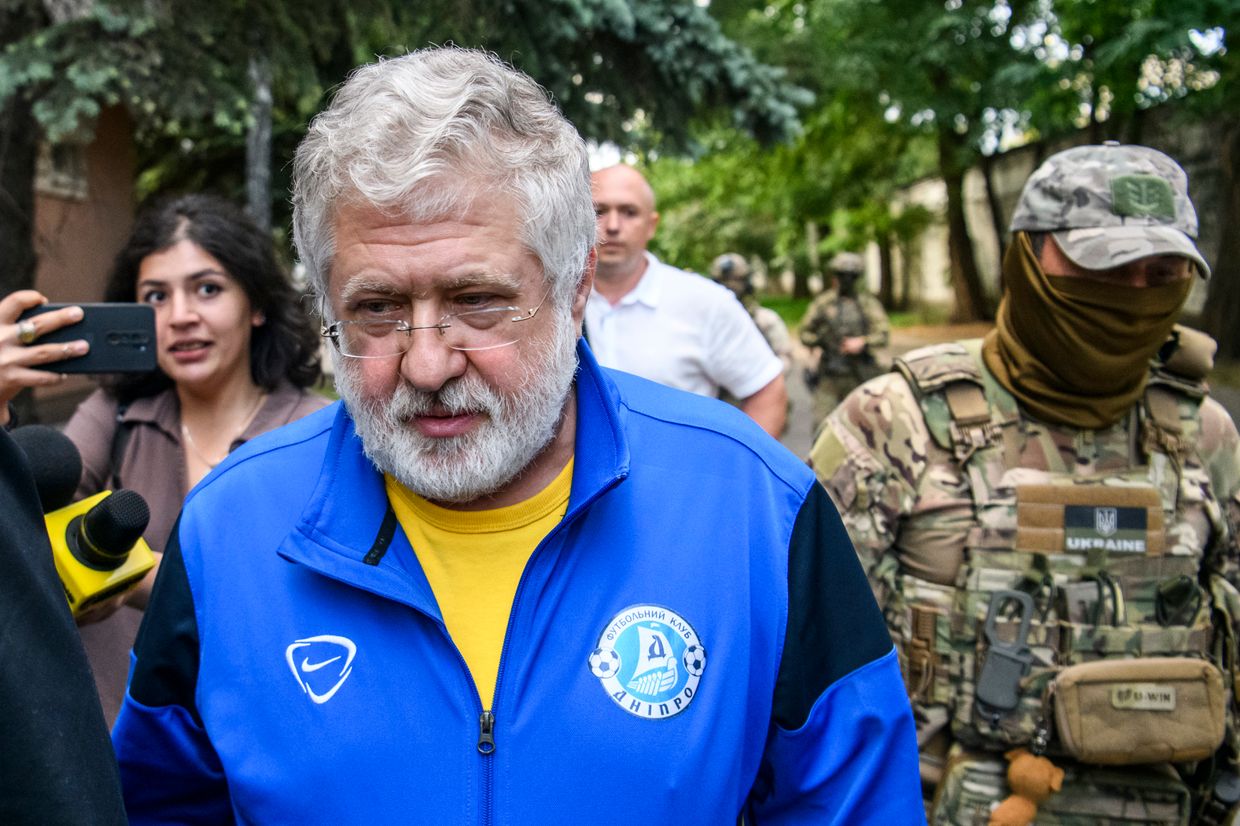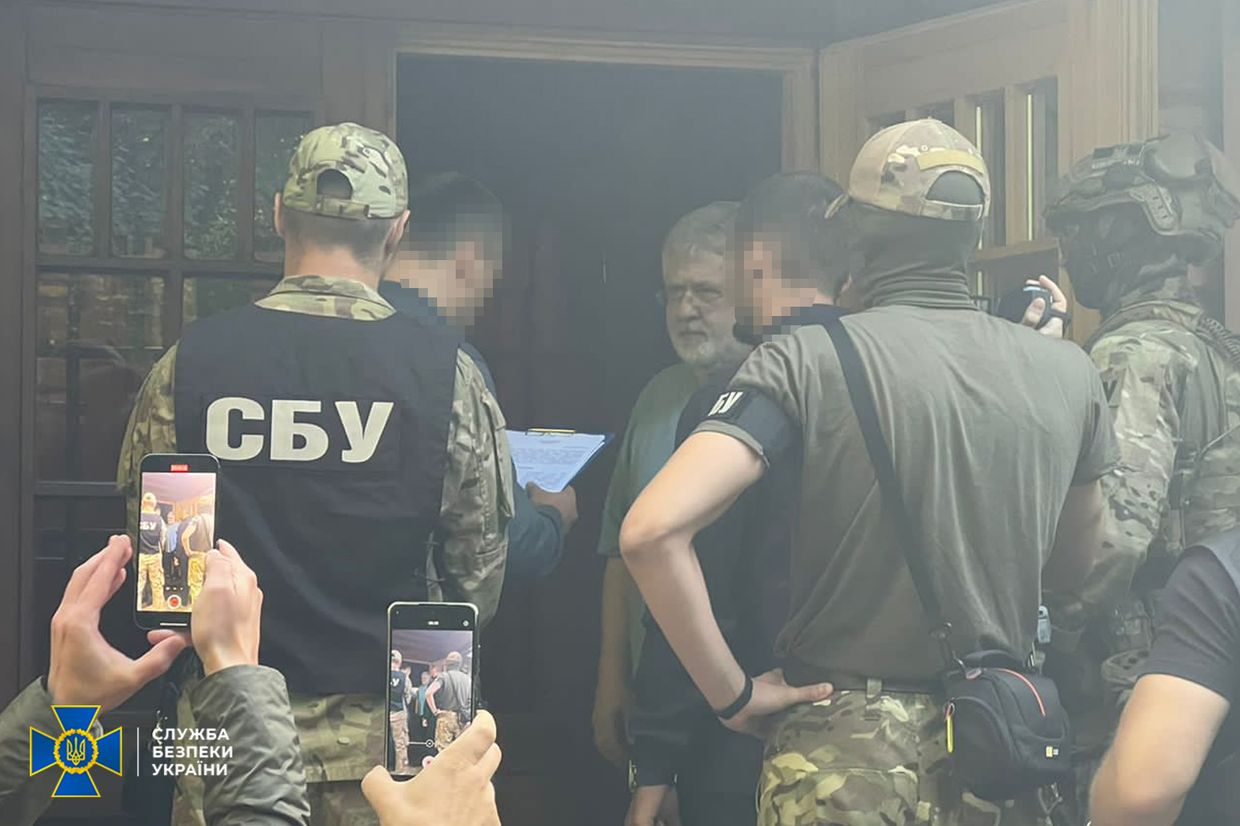Watchdog: One of Kolomoisky's cases likely to be closed due to court ruling

One of Ukraine’s biggest embezzlement cases – that against oligarch Ihor Kolomoisky – is likely to be closed due to a recent court ruling, according to the Anti-Corruption Action Center.
The ruling may become a death knell for Ukraine’s long-running efforts to prosecute the flamboyant tycoon. Kolomoisky, who is currently under arrest, is also being investigated by the U.S. and Israel.
The High Anti-Corruption Court’s appeal chamber on Nov. 28 ruled that the National Anti-Corruption Bureau of Ukraine (NABU) had missed the May deadline for completing the investigation.
It's one of the two cases opened in Ukraine against the oligarch.
This decision means that the case will most likely be closed either by prosecutors or by a court, Vadym Valko, a lawyer at the Anti-Corruption Action Center, told the Kyiv Independent on Nov. 29.
If the case is closed, its closure can be appealed, he added.
On Nov. 28, the High Anti-Corruption Court also rejected motions to freeze the suspects’ assets and to impose bail and travel restrictions on them.
NABU charges
In September, the NABU charged PrivatBank’s former owner Kolomoisky and his alleged accomplices with embezzling Hr 9.2 billion ($250 million) from PrivatBank.
Apart from Kolomoisky, the suspects include Oleksandr Dubilet, Lyudmila Shmalchenko, Yaroslav Luhovoy, Tetiana Yakymenko, and Nadiya Konopkina.
According to the investigation, the oligarch allegedly set up a scheme in 2015 to transfer funds from PrivatBank to an offshore company and increase his own share in the bank's capital.
For this purpose, the bank was obliged to pay over $250 million to the said offshore company under the pretext of allegedly repurchasing its own bonds at an inflated cost.
Part of the funds, amounting $12 million, were later transferred to five legal entities allegedly to facilitate the purchase, only to eventually end up in the personal account of Kolomoisky, the NABU said.
SBU case
The NABU case against Kolomoisky is separate from the Kolomoisky case opened by the Security Service of Ukraine (SBU) and the Economic Security Bureau (BEB).
As part of the SBU case, Kolomoisky was charged with fraud and money laundering and arrested in September. The SBU said that Kolomoisky had allegedly laundered over Hr 500 million ($13.5 million) in 2019-2020.
The Anti-Corruption Action Center says that the SBU and BEB knew that the NABU was preparing charges for Kolomoisky. The SBU case against the oligarch was opened in August, and it is unclear how the SBU and BEB could have gathered enough evidence in such a short period, according to the watchdog.
Lozovy amendments
The court decision and the potential closure of the NABU case became possible due to the controversial “Lozovy amendments,” named after former MP Andriy Lozovy, who initiated them.
The amendments, passed in 2017, dealt a major blow to all criminal investigations by severely limiting the terms of investigation and setting strict deadlines for sending cases to trial.
Anti-corruption activists argue that the amendments aimed to save corrupt officials by hampering investigations against them.
Moreover, the amendments were adopted amid numerous procedural and legal violations, since the lawmakers were not given the final text to read and thus did not know what they were voting for, while some lawmakers were filmed voting for others, which is illegal.
The court ruling on Kolomoisky stems from different interpretations of the Lozovy amendments, Valko said.
Prosecutors and some other courts have argued that the Lozovy amendments do not apply if several cases are merged, and one of them was opened before the amendments were passed. However, the Anti-Corruption Court’s appeal chamber disagreed with this interpretation.
Since 2017, anti-corruption activists have urged parliament to cancel the Lozovy amendments but the lawmakers have so far refused to do so.
“Kolomoisky will definitely thank Servant of the People MP Serhiy Ionushas, whose law enforcement committee is obstinately refusing to cancel the Lozovy amendments,” Vitaly Shabunin, head of the Anti-Corruption Action Center’s executive board, said on Facebook on Nov. 28.
Ionushas did not respond to a request for comment.













